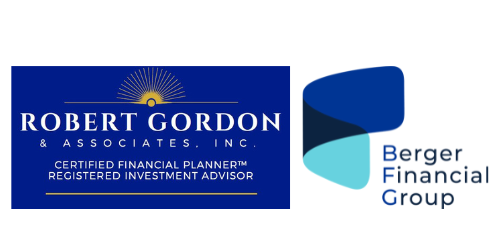The Unethical, But Legal, Actions of Some Financial Advisors
Submitted by Robert Gordon & Associates, Inc on April 6th, 2018
There’s plenty of opportunity out there for someone who’s unethical to take advantage of good people. That’s especially true when that someone is a financial advisor, so investors need to carefully select whom to trust. What some advisers do may not be criminal, but it’s still unethical because it’s not in clients’ best interests.
Here are three ways financial advisors might act unethically while staying within what the law allows — and how to avoid them.
1. Not disclosing what their obligations are
Before you hire an adviser, determine what his obligations to you are. Your adviser needs to clearly spell out not just what he’ll do for you, but how he’ll act. You should know whether he’s legally supposed to make decisions that are “suitable” for you or choices that are in your best interest, known as acting as a fiduciary. Most individual investors don’t know the difference.
There’s a key difference between the suitability standard and the fiduciary standard. Brokers, who may call themselves financial advisors and are often paid by asset management companies, have only a duty to put clients into a suitable investment, not necessarily the cheapest or best investment. Advisers bound by the more rigorous fiduciary standard, however, must put the client’s interest first.
What you can do: Find a fiduciary who operates on a fee-only basis. In this case, you — and you only — pay an adviser to work in your best interest.
2. Pushing complex contracts that are not fully explained
The confusing legalese of financial products is perfect for hiding traps and huge commissions.
While some products, such as mutual funds, are straightforward, others, such as annuities and various types of insurance, can be unnecessarily complicated. Key questions — when and how you as the client get paid, and when you don’t — need to be answered clearly.
However, one important question often isn’t asked: How much is the product issuer paying the adviser? The adviser may be taking as much as 10% of the investment as a commission, an egregious level. For stock funds, the best advisers can point you to products that have no commissions.
What you can do: Keep asking questions. If a complex financial product is right for you, an ethical adviser will explain it completely so that you understand the contract.
3. Making recommendations just to generate commissions
Depending on the situation, this could be classified as "churning." Ultimately, the "advisor" makes up a reason for a change in your account so you agree to a transaction which generates a commission. It isn't hard to imagine that a financial sales person that gets paid based upon the transactions that they complete through sales commissions would have an incentive to increase the number of transactions for his clients.
The SEC and other regulators are coming down hard on advisors that recommend unnecessary account activity with the sole goal of generating commission. This doesn't mean that there aren't ways that commission advisors aren't getting around the rules.
What you can do: Work with an advisor that honors their fiduciary responsibility to put the interest of the client ahead of their own. Look for the CFP® mark behind their name or work with an advisor under an independent RIA business model.
If you’re buying any financial product, ask how the adviser is being paid. But remember, just because a fee is disclosed doesn't make it acceptable.
There are plenty of great advisers who are committed to doing right by their clients. Find them.
Get tangible evidence of the adviser’s duty to you. Ask, ‘Are you a fiduciary?’ If clients can get it in writing, even better.”
Consumers should investigate advisers through the Investment Adviser Public Disclosure website’s database of advisers, sponsored by the U.S. Securities and Exchange Commission. Advisers should be licensed and registered, and have few complaints against them.
Robert Gordon & Associates operates under an Independent Registered Investment Advisor business model because of the luxury that comes from eliminating most of the conflicts of interest that come with other models. We have been honoring our Fiduciary responsibility to our clients since our founding in 1983. Call Us Today!

